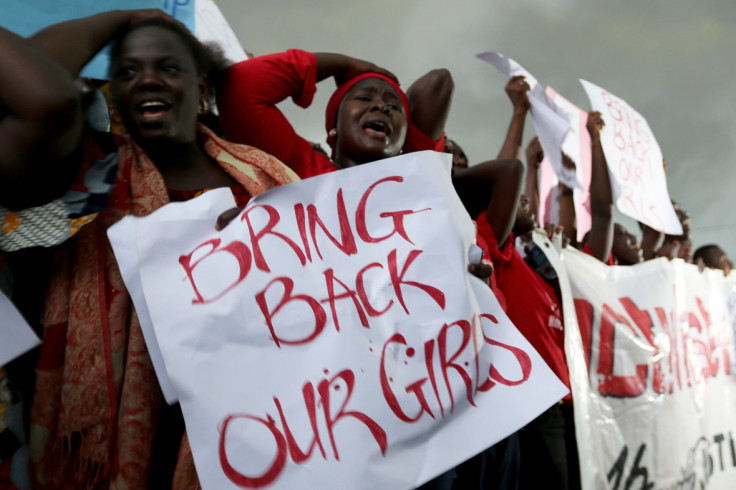Nigeria: Give Boko Haram fighters jobs and you will end terrorism urges freed Chibok girl

A girl who managed to escape after being abducted by terror group Boko Haram has blamed lack of education for the widespread violence in Nigeria.
Debora, 19, was abducted together with other 249 schoolgirls from the village of Chibok, Borno state, in April 2014. Shortly after, some 50 girls managed to escape but the rest are still missing despite efforts by the Nigerian army to find them.
The mass abduction prompted politicians and celebrities around the world to join online campaigns to urge the Nigerian government and the international community to step up the efforts to find the girls. Meanwhile, reports emerged that they are being used by the terrorists in suicide bomb attacks.
Who is Boko Haram?
Boko Haram fights against Western influence in Nigeria and aims to impose its version of Sharia law in the country. The group declared an Islamic caliphate in Gwoza, along the Cameroon border, in August 2014.
Boko Haram has raided several cities in the north of the country in a bid to take control of more land.
Three states, Adamawa, Borno and Yobe, have been under a state of emergency since May 2013, due to Boko Haram's deadly attacks.
In an interview with the Times, Debora said that punishing the insurgents will not solve the problem of terrorism in Nigeria.
"Even though they have done so much destruction, to me, punishing them will not be the best answer," she said. "It is by showing them what they are doing is wrong. Most of them are illiterate. They don't know what they are doing.
"Some of them are in these gangs because of poverty. So by giving them a job, making them realise that these things are not good, this is the best way, I think, to help them."
After they managed to flee, Debora and 20 other escapees moved to Yola, capital of Adamawa state, where they are studying at the American University of Nigeria.
Boko Haram has killed thousands of people and captured several territories in north-eastern Nigeria since its insurgency started in early 2000s. The Nigerian army – aided by troops from neighbouring countries Chad, Cameroon, Niger and Benin – has regained control of some of the areas previously controlled.
The army's offensive was launched a few weeks before Nigeria held a presidential election, which was postponed by the then president Goodluck Jonathan in February amid security concerns.
The newly elected president, Muhammadu Buhari, vowed to defeat Boko Haram, which recently pledged allegiance to Islamic State (Isis) terror group.
© Copyright IBTimes 2025. All rights reserved.





















